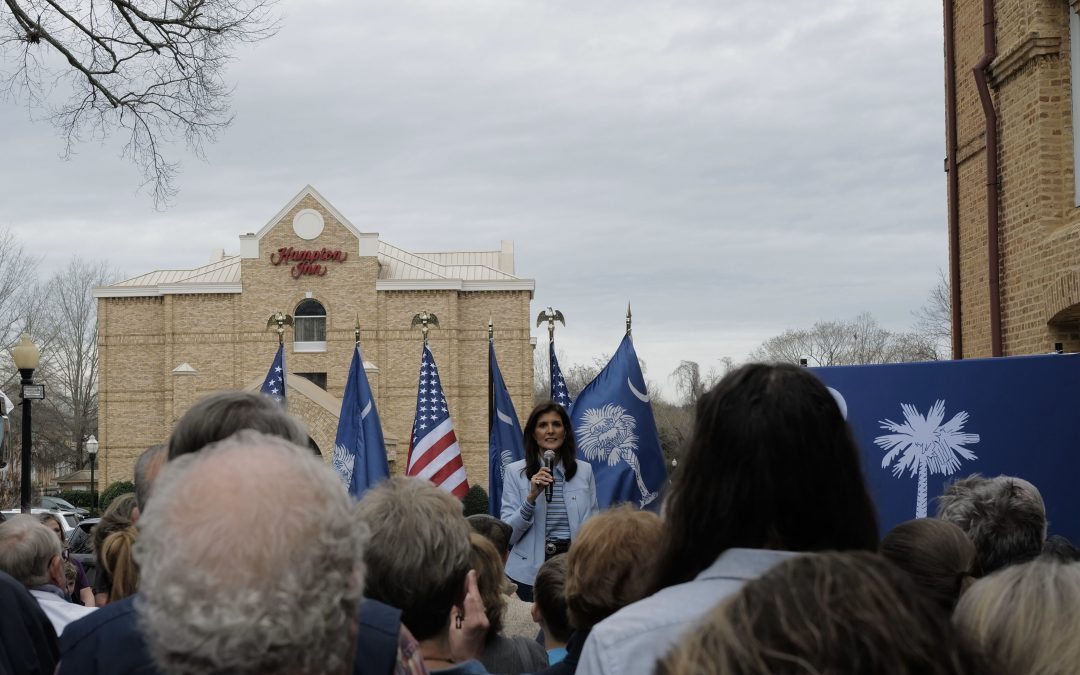South Carolina – Even with the Republican primary at hand and a former governor of their state on the ballot, young voters in South Carolina were focused instead on the general election rematch between President Joe Biden and Donald Trump — whether they were students at colleges across the state or trainees at a technical school.
Young voters played a decisive role in 2020 ultimately securing Biden’s victory, and may play a crucial role again come November, according to the Center for Information & Research on Civil Learning and Engagement at Tufts University in Massachusetts.
Yet, a recent pre-2024 election survey of young voters 18 to 34 found that nearly one-third of voters were undecided whom they will support in the 2024 presidential election. While 35% of those undecided voters helped elect Biden in 2020, only 13% had been Trump supporters.
Although former Gov. Nikki Haley is on the ballot in Saturday’s GOP primary, none of the dozen South Carolina young people interviewed recently said they would vote for her. A rally held in the small town of Newberry drew only a couple of young people.
“She has such a horrible track record of constantly lying and backtracking on her previous positions that maybe she won’t actually follow through on her policy proposals,” said Andre Chang, 21. “Either way, no matter which way you look at it, she’s a bad candidate.”
Chang, a senior at the University of South Carolina and president of the university’s Young Americans for Constitutionalism, said that the “animus” toward Haley’s candidacy and her positions is not only held by his conservative peers, but by young people in general.
“She’s already openly advocated for raising the retirement age. That’s a very interesting political strategy of hers, especially if she’s planning to win the youth vote when she’s telling us that we’ll be working ’til we’re 70,” Chang said.
A first generation immigrant to the Palmetto State from Hong Kong, Chang said his organization’s focus is to support political candidates who are “willing to make the case for America” and restore its national identity rooted in morality.
When asked if a Donald Trump presidency would kickstart the restoration of morality to the nation’s identity, Chang repeated a view voiced by other young South Carolinians:
“I don’t think anyone really believes Trump is a perfect candidate. But even for those who do support Trump, it’s more of a prudential choice. It’s the question of what are the options on the table and is he moving us at least closer in the right direction?”
That’s the choice Matthew Tasker, a welding instructor at Trident Technical College’s Employee Training Program, said he would make, too.
Tasker, 32, did not vote in 2016. In 2020, he cast his vote for “whoever that libertarian was.” The Ohio transplant paused his welding lesson and set aside his equipment to share his plan to vote for the candidate he considered the lesser of two evils: Trump.
“I just think the world was a better place, a safer place. The economy was a little better,” Tasker said, referring to Trump’s presidency. According to Tasker, the need for a strong leader is the primary reason he will vote for Trump in November.
“Look at what’s going on in the world now. There were no wars going on as far as what’s happening now with Ukraine and with China. … I just think we look weak,” Tasker said. “We need a strong leader and right now, I don’t think we have one.”
Abonie Wright, one of the welders participating in the employee training program at Trident, said she had not decided whom she would cast her ballot for come November.
Wright, 33, voted for Barack Obama in her first presidential election, but has not voted since. Although hesitant, she said she planned to vote this fall.
While she said she will need to sit down and weigh the pros and cons of a Biden-versus- Trump presidency, Wright’s experience serving overseas in the military had made her question the Biden administration’s current involvement in international conflicts.
“It’s mixed feelings because I would like to help everybody who is in need of help, but I know that as a country, we need a lot of help here ourselves,” Wright said. “It’s hard when you think about how we’re in a lot of debt, but we’re giving away a lot of money, too.”
At Cougar Mall, a popular gathering spot at the College of Charleston, Emily Kang was waiting for a friend to grab lunch. She said she definitely planned to vote in her first presidential election this year because of her views on abortion and college debt.
But Kang said she and many of her friends needed to do more research on the candidates.
“I feel like a lot of us are uncertain. We see mostly current events on social media,” said Kang, 20. “A lot of it comes from Instagram and people posting on their stories.”
As a South Carolinian, Kang remembered Haley’s time as governor, although she “was too young to really know what she did.” Much of what she’s seen of the presidential hopeful has been through social media.
Haley has tried to walk the line between being against abortion and trying to achieve consensus around a national abortion ban. She has called for improving access to contraceptives, supporting adoption and not criminalizing women who have an abortion.
Yet, her record as South Carolina’s governor highlights her less-than-moderate history on the issue, including supporting various legislation that would ban abortion and signing an abortion ban as a governor.
Haley said that if a bill for a national abortion ban came to her desk as president, she would sign it.
She has also pitched herself as a “new generational leader” whose age and mental competency make her a more favorable choice over Biden and Trump.
Yet, these messages do not seem to have earned her much support with the young people in her own state.


